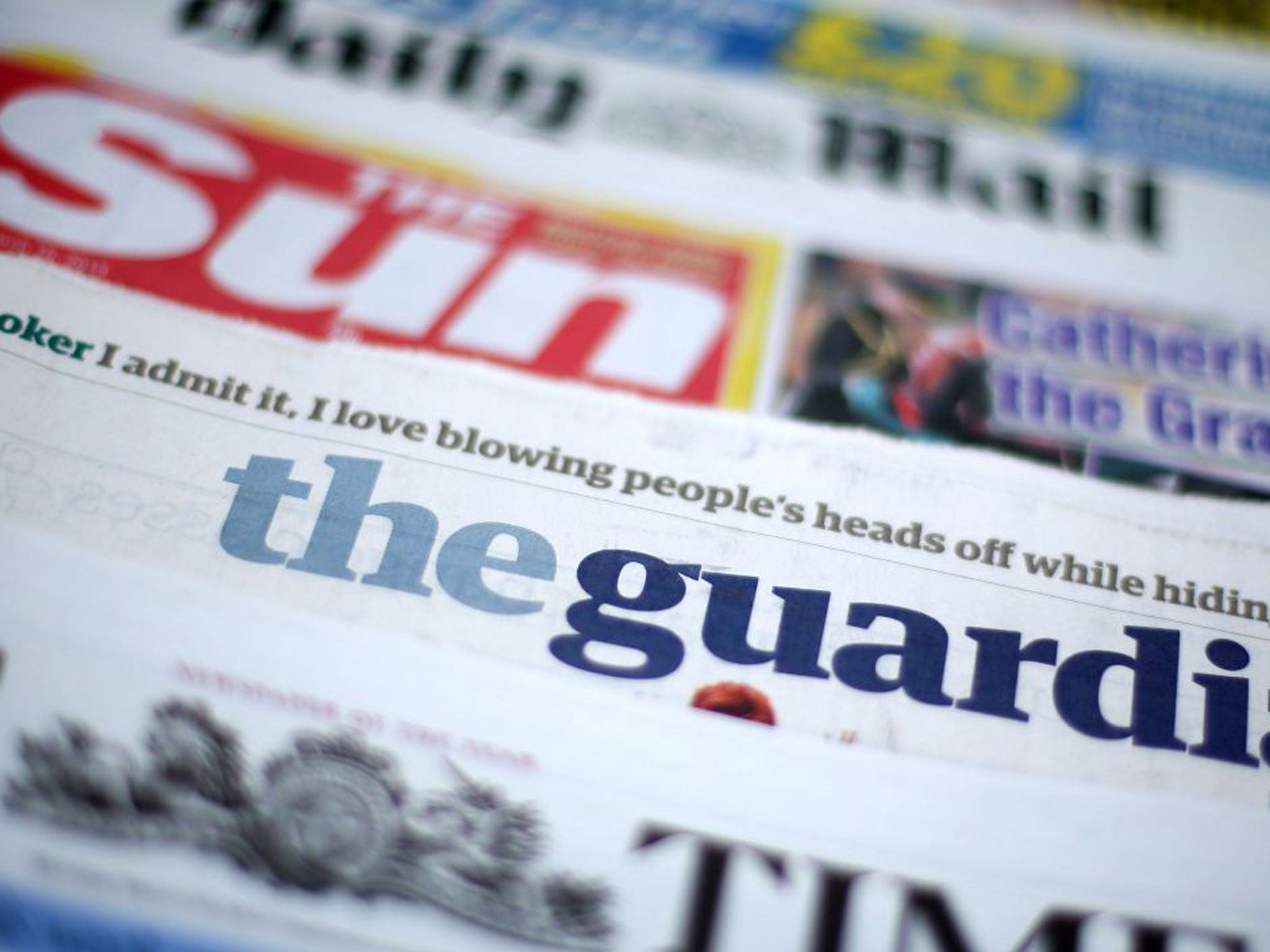Newspaper industry seeks injunction against next stage of Royal Charter on press reform
Move is an attempt to delay the process

Your support helps us to tell the story
From reproductive rights to climate change to Big Tech, The Independent is on the ground when the story is developing. Whether it's investigating the financials of Elon Musk's pro-Trump PAC or producing our latest documentary, 'The A Word', which shines a light on the American women fighting for reproductive rights, we know how important it is to parse out the facts from the messaging.
At such a critical moment in US history, we need reporters on the ground. Your donation allows us to keep sending journalists to speak to both sides of the story.
The Independent is trusted by Americans across the entire political spectrum. And unlike many other quality news outlets, we choose not to lock Americans out of our reporting and analysis with paywalls. We believe quality journalism should be available to everyone, paid for by those who can afford it.
Your support makes all the difference.The newspaper industry has applied for an injunction against the Privy Council's consideration on Wednesday of a historical Royal Charter on press reform and has sought judicial review of a decision to reject its own charter.
The move is an attempt to delay the process of press reform as the Privy Council prepares to consider on Wednesday a Royal Charter approved by all three main political parties and proposing a system that will allow for punitive penalties on publications that chose not to sign up.
A separate charter, drawn up by the newspaper and magazine industry, was rejected by a sub-committee of the Privy Council earlier this month. Publishers claim that the MPs' Charter will allow political interference in the freedom of the press.
But in a potential late amendment to the MPs' Charter, the Culture Secretary Maria Miller is seeking to persuade persuaded Labour and the Liberal Democrats to introduce a strengthening of the "parliamentary lock" designed to prevent changes being made to the system by authoritarian future governments. The amendment requires that any future changes must be approved, not only by a two-thirds majority of both Houses of Parliament, but also by a two-thirds majority of the independent Recognition Panel overseeing the new press regulatory body.
Politicians will be hoping that the change will encourage newspapers, which have previously been very hostile to the MPs' charter, to reconsider joining up.
But yesterday the publishers sought an injunction of the Privy Council's consideration of the Parliament Charter and applied for judicial review of the decision to reject the industry's own charter.
Earlier this month, a sub-committee of the Privy Council ruled that the industry charter was insufficiently compliant with proposals for reform of press regulation put forward by Lord Justice Leveson following his long inquiry into the press.
In a joint statement, the Newspaper Society, the Newspaper Publishers Association, the Scottish Newspaper Society and the Professional Publishers Association, said the process had been unfair.
"The failure of the Privy Council Committee to carry out a fair and transparent consultation on the industry's Royal Charter application was made even more significant by the fact that the possible involvement of the state in the regulation of the Press raised very serious constitutional issues," it said.
"Given the gravity of these constitutional issues, the industry's lawyers asked the Privy Council on Friday to give an undertaking that the rival cross-party Royal Charter, written by politicians and the Hacked Off lobby group, would not be presented to the Queen for sealing on Wednesday. That request has been refused and an injunction will now be sought."
The Department of Culture, Media & Sport said it was "disappointed the press are undertaking legal action" after a long period of negotiations.
In a statement, it said: "The Industry Royal Charter was considered in an entirely proper and fair way by the Privy Council Committee and the reasons they were unable to recommend its grant are in the public domain. Whilst they found acceptable areas, they identified fundamental issues that were not compatible with the Leveson principles such as a lack of independence around appointments and funding and no requirement to provide an arbitration scheme.
"The Government is working to bring in a system of independent press self-regulation that will protect press freedom while offering real redress when mistakes are made. The Culture Secretary pushed hard for recent changes on arbitration and the standards code to be made, which will ensure the system is workable and legal action is particularly disappointing in light of these changes."
Subscribe to Independent Premium to bookmark this article
Want to bookmark your favourite articles and stories to read or reference later? Start your Independent Premium subscription today.
Join our commenting forum
Join thought-provoking conversations, follow other Independent readers and see their replies
Comments